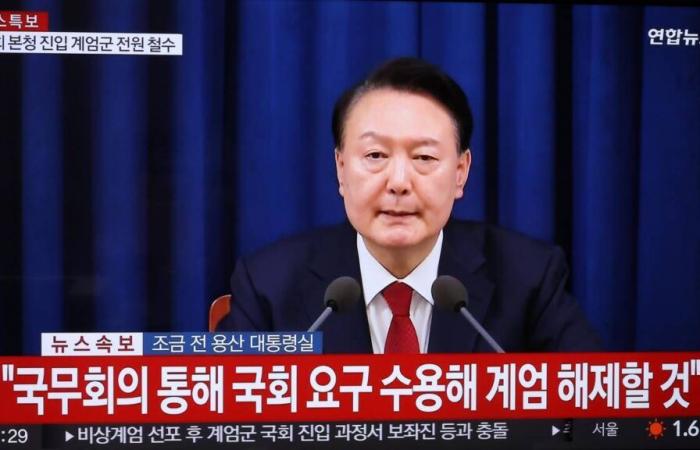Constitutional law and order prevailed in Seoul. But South Korea, in a few hours, almost fell into dictatorship. Tuesday evening, in dire straits, its president, Yoon Suk-yeol, declared on television the imposition of martial law and sent soldiers to take control of parliament and the media came under the control of the army. Astonishment in the capital. The opposition and a crowd then took to the streets to protest. Six hours later, this same president reappeared on the screens to announce the lifting of this measure. In the meantime, parliament managed to urgently pass a motion repealing it. The army did not fire, the president gave in. On Friday, he could face a motion for impeachment. Thanks to deputies ready to fight, democracy is saved.
We could rejoice in the solidity of institutions, testimony to South Korean democratic maturity, more than forty years after the last episode of lasting imposition of martial law. The reality is undoubtedly less encouraging. Yoon Suk-yeol’s coup is only the latest example of the weakening of democracies around the world. Multiple factors explain the ongoing erosion, not the least of which is the advent of mass communication through social networks. The resulting polarization within democratic societies is now fueled by increasing military conflicts. When Yoon Suk-yeol claims to use force to protect his liberal country from the communist threat by suggesting that there would be a third column, he is being politically exploited. The fact remains that the new military alliance between Moscow and Pyongyang is not only likely to destabilize South Korea, but also threatens its security.
South Korean instability will have an impact all the way to kyiv
Yoon Suk-yeol’s coup also comes in a very specific context: that of the election of Donald Trump. The return of the billionaire to the White House endangers (among other things) the system of defensive alliances with the main allies of the United States. And it is the comeback of a man who calls himself agnostic on the nature of political regimes. Worse, he does not hide his admiration for dictators. Taking advantage of the transition of power in Washington, the South Korean president was very well able to count on the fact that, unlike the outgoing Democratic administration, the new team in power would see nothing wrong with a South Korea under the law. martial.
The period of political instability which is beginning in South Korea, finally, will not be without consequences for Ukraine and Europe. The support – admittedly measured – from Seoul to kyiv should suffer from a change of majority. The South Korean government was considering $100 million in new aid. Now everything is frozen. In Seoul, as in a majority of democratic states, the capacity to act is restricted.






